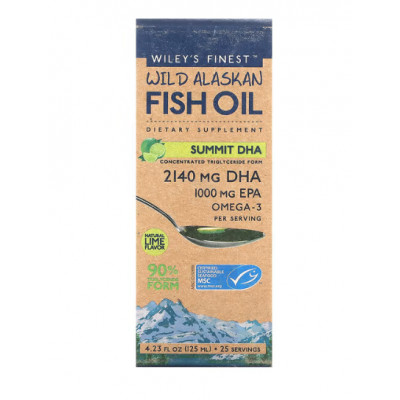
Monthly Offers
Sign up for exclusive offersYour Favourite Brands
View All BrandsRead Our Blog
For The Latest Recipes & MoreFree Delivery
On Orders Over £55Monthly Offers
Sign up for exclusive offersYour Favourite Brands
View All BrandsRead Our Blog
For The Latest Recipes & MoreFree Delivery
On Orders Over £55Fish oil is sourced from the tissues of oily Fish and contains the omega 3, Essential Fatty Acids docosahexaenoic acid (DHA) & eicosapentaenoic acid (EPA). As one of the most commonly consumed dietary Food Supplements, fish oils are available in both liquid and capsule form.
Fish oil and omega-3 are often used interchangeably, but they are not the same thing. Omega-3 is a type of fatty acid that is essential for good health, and it can be found in various foods, including fish, nuts, and seeds. Fish oil, on the other hand, is a supplement that is extracted from the tissues of fatty fish like salmon, tuna, and mackerel, and it is a rich source of omega-3.
While both fish oil and omega-3 are beneficial for health, there are some differences between the two. One significant difference is the concentration of omega-3 in fish oil. Fish oil supplements can contain different amounts of omega-3, depending on the brand and type of fish used. Some fish oils are highly concentrated, providing up to 1000mg of omega-3 per serving, while others may have lower amounts.
Another difference is the way that fish oil and omega-3 are consumed. Fish oil supplements are typically taken as a capsule or liquid, while omega-3 can be consumed through food or supplements. Some of the best food sources of omega-3 include fatty fish, flaxseeds, chia seeds, and walnuts.
Fish oil is a popular dietary supplement that is rich in omega-3 fatty acids. These fatty acids have numerous health benefits, including supporting heart health, brain function, and joint health. While most people can benefit from consuming omega-3, there are certain groups of people who may benefit more from taking fish oil supplements.
People who do not consume enough omega-3 in their diet, such as those who do not eat fish regularly, may benefit from taking fish oil supplements. The American Heart Association recommends consuming at least two servings of fatty fish per week to obtain the recommended amount of omega-3, but not everyone can or wants to eat fish regularly. In such cases, taking a fish oil supplement can provide the necessary omega-3 intake.
Individuals with certain health conditions may also benefit from taking fish oil supplements. For example, people with high blood pressure, high cholesterol, or triglycerides may see improvements in their numbers by taking fish oil supplements. Additionally, people with rheumatoid arthritis, a condition that causes joint pain and inflammation, may experience reduced symptoms by taking fish oil supplements.
Pregnant and breastfeeding women are also advised to take fish oil supplements to support the development of their baby's brain and eyes. Omega-3 is essential for the growth and development of the brain and nervous system, and it can be difficult to obtain enough through diet alone.
The best time to take fish oil supplements is typically with a meal, preferably one that contains some fat. This is because omega-3 fatty acids are best absorbed by the body when consumed with food that contains fat.
Taking fish oil supplements with a meal also helps to reduce the risk of gastrointestinal discomfort, which can occur when taking supplements on an empty stomach. Additionally, taking fish oil supplements at the same time each day can help make it a consistent part of your routine and make it easier to remember to take them.
It is important to follow the recommended dosage and consult with a healthcare provider before starting any new supplements. Taking high doses of fish oil supplements can lead to adverse effects, such as gastrointestinal discomfort, increased risk of bleeding, and interactions with certain medications.
It is also essential to choose a high-quality fish oil supplement from a reputable brand. Some fish oils can be contaminated with heavy metals, PCBs, and other toxins, which can be harmful to health. Look for fish oil supplements that are third-party tested for purity and potency to ensure that you are getting a safe and effective product.
Fish oils may help with symptoms of eczema, a skin condition characterizsd by dry, itchy, and inflamed skin. The omega-3 fatty acids found in fish oil have anti-inflammatory properties, which can help reduce inflammation and itching associated with eczema.
Research has shown that taking fish oil supplements may reduce eczema symptoms in some people, but the results are mixed. A 2018 systematic review and meta-analysis of 19 randomized controlled trials found that taking fish oil supplements may improve eczema symptoms, such as skin redness, itching, and scaling. However, the study also found that the quality of evidence was low to moderate, and more high-quality studies are needed to confirm the effectiveness of fish oil for eczema.